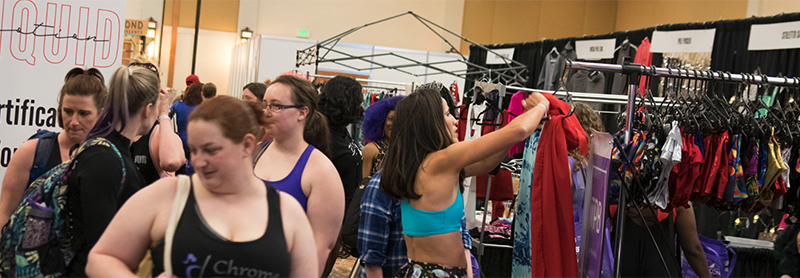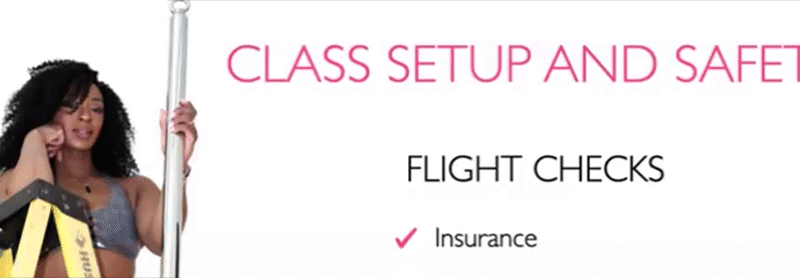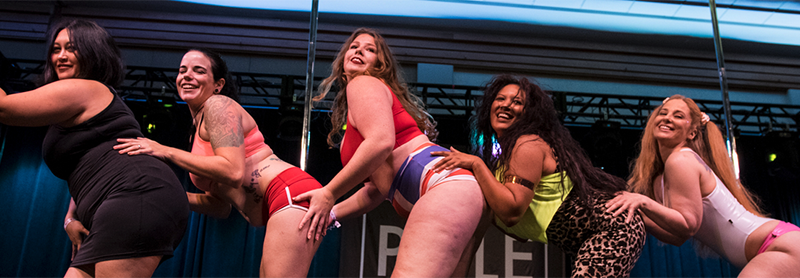A train-cation is a trip (usually away from home) where you focus for a specific…

Hosting a Pole Star Workshop at Your Studio
When booking a traveling pole star workshop leader to come to your studio and teach your students, there are several things to consider:
Always Have a Contract
Always have a contract that specifically outlines your relationship so there are absolutely no questions about who is responsible for what. Here are a few main topics that should be clearly laid out in the contract and accepted by all parties. Remember that a contract can be negotiated and should be carefully reviewed and updated. If both parties are flexible, often a win-win agreement can be reached.
Click here for a sample contract.
Double Check Equipment Requirements
Always double check the pole stars’ requirements for workshops against your equipment. Are they going to teach a combo that requires 15 ft poles? Can they only work on spin mode? On a 38mm? Do you need crash mats? Make sure they know what to expect and can plan accordingly
Make Sure They Have Insurance
Most traveling pole stars would not be covered under your insurance. Fortunately, many traveling pole stars do maintain their own instructor insurance but not all do. Make sure whomever you work with has their own appropriate insurance and that they list your studio/your business as an “additional insured” on their Certificate of Insurance. They must provide you this as a pdf before hosting a workshop. Adding an additional insured is often free of cost, although for workshop leaders traveling frequently, their insurance may start to change.
Who’s Covering Travel Costs?
Are you paying for flight and hotel plus transportation to and from your studio? Or are you hosting in your home? Be clear about what you are providing and what you’re not—particularly if you are hosting. If all you’ve got is an inflatable bed in the kitchen, let them know and understand how that might not be ok.
Do You Need Exclusivity?
It is often convenient to do a tour in a geographic region and visit several studios. If you want your pole star to be exclusive to only your studio, you may have to pay for that right. There may be separate charges if you’d like them to perform as well. Read more about non compete agreements—you may consider a non compete clause in your contract to guarantee exclusivity. Note that the pole star is likely to counter with a cost for that accommodation.
Consider the Studio Fee?
There may be a hard limit or a recommended limit for the “studio fee” on top of any workshop, private or performance cost to your students outlined by your visiting star. Charging more per head then the limit may make you a few extra bucks, however it is unlikely the star will visit you again.
Clarify Payment Terms
Understand if you’re paying via PayPal, a cashiers check, or some other method; confirm the currency; and confirm the timing of payment (half before/half after, all up front, all after, etc.) Particularly for international stars, a check after the workshop is complete might not be the best option.
Understand your Minimums (if applicable)
Many pole stars have a minimum requirement for number of students for the workshop to run. If you do not meet the minimums, then you may be liable to pay for the difference or the workshop may be canceled last minute. Some pole starts may offer incentives to sell beyond the minimums including a free spot for you or one of your instructors in the workshop. If you aren’t comfortable with minimums, consider creating a different payment arrangement such as a split. Minimums should also be clearly outlined in your contract. Be open to other ways to get new training opportunities at your studio other than in-person such as online classes or even a residency. These options may be more cost effective for you and often are just as beneficial to the workshop leader as they have less risk and more guaranteed work.
When It’s Not Going to Work (Cancellation Policy)
Sometimes a workshop just doesn’t sell. It’s the wrong date, wrong content, too expensive or otherwise not a good fit for your studio. Specify a date in the contract such as one month before the date of the workshop to assess if the minimums are on track to be met. You may consider offering an alternative pay structure at that time. Make it a conversation with your pole star and decide what to do—cancel, reschedule, continue with modifications, etc.
Joint Marketing Opportunities Can Be Useful
Having a pole star visit you provides an opportunity to market your studio and potentially attract new students who otherwise might not visit your studio. Stars will often promote their workshops through social media channels as well (double check contractual stipulations on this, what is a “nice to do” could become a “required” or even a “paid promotion” expense) as well as post-workshop photos highlighting your studio and students.
Training to Your Students, Instructors and You are Beneficial
Even the best studios can get a little stuck sometimes—having a pole star visit can give your instructors and your students new material and reinvigorate their passion for pole or help them prepare for an important competition. You can also write off training expenses for you and your employee (W2) staff.
Network with Others in Our Industry
Welcoming a pole star may be a great opportunity to catch up on industry news and make a networking connection that could benefit both of you in the future, particularly if your studio is in a location that is far from other studios or industry contacts. This is a small industry but getting bigger by the minute!
Make Your Decision
As you, your studio, your students and your instructors grow and change, revisit this idea and see when might be a good time to welcome a pole star or other visiting expert to provide great new content and ideas to reinvigorate your passion.



